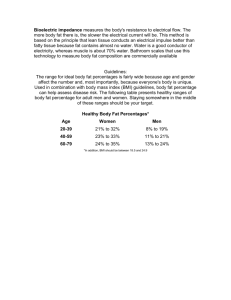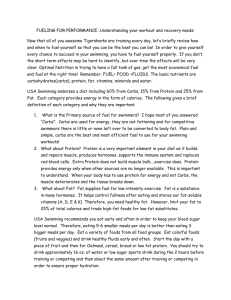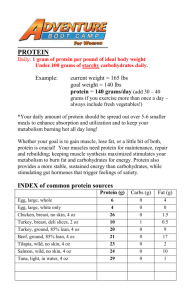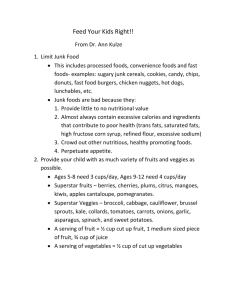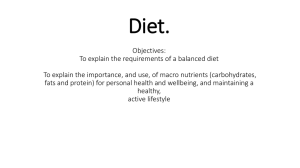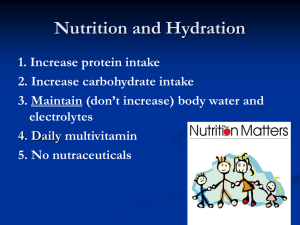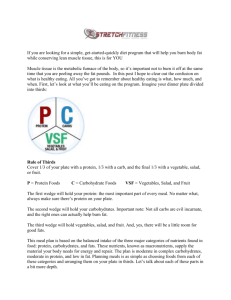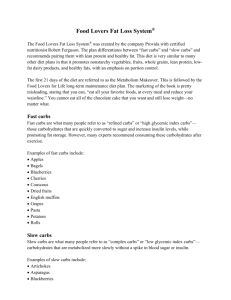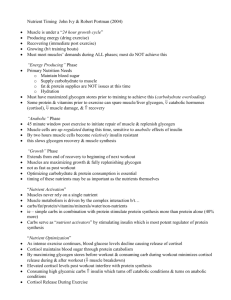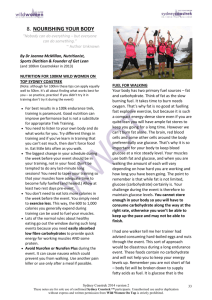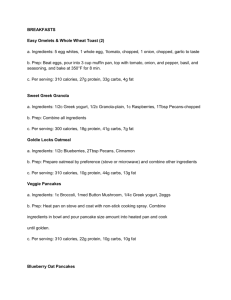Nutrition Advocate Newsletter February 2012 – Carbophonia
advertisement
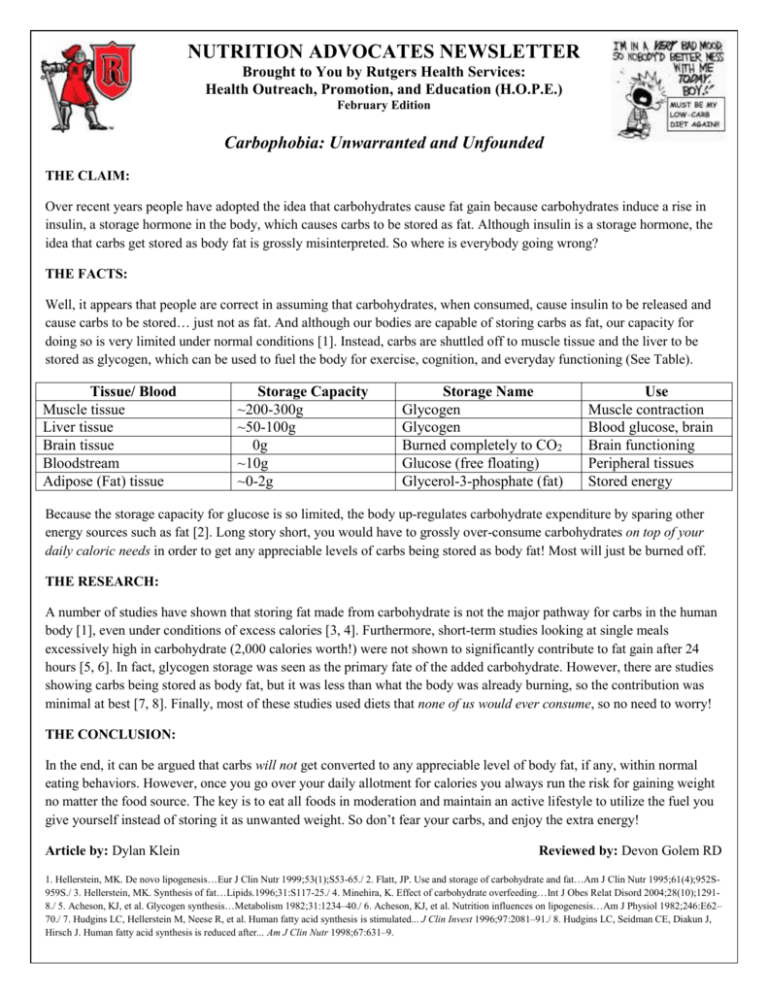
NUTRITION ADVOCATES NEWSLETTER Brought to You by Rutgers Health Services: Health Outreach, Promotion, and Education (H.O.P.E.) February Edition Carbophobia: Unwarranted and Unfounded THE CLAIM: Over recent years people have adopted the idea that carbohydrates cause fat gain because carbohydrates induce a rise in insulin, a storage hormone in the body, which causes carbs to be stored as fat. Although insulin is a storage hormone, the idea that carbs get stored as body fat is grossly misinterpreted. So where is everybody going wrong? THE FACTS: Well, it appears that people are correct in assuming that carbohydrates, when consumed, cause insulin to be released and cause carbs to be stored… just not as fat. And although our bodies are capable of storing carbs as fat, our capacity for doing so is very limited under normal conditions [1]. Instead, carbs are shuttled off to muscle tissue and the liver to be stored as glycogen, which can be used to fuel the body for exercise, cognition, and everyday functioning (See Table). Tissue/ Blood Muscle tissue Liver tissue Brain tissue Bloodstream Adipose (Fat) tissue Storage Capacity ~200-300g ~50-100g 0g ~10g ~0-2g Storage Name Glycogen Glycogen Burned completely to CO2 Glucose (free floating) Glycerol-3-phosphate (fat) Use Muscle contraction Blood glucose, brain Brain functioning Peripheral tissues Stored energy Because the storage capacity for glucose is so limited, the body up-regulates carbohydrate expenditure by sparing other energy sources such as fat [2]. Long story short, you would have to grossly over-consume carbohydrates on top of your daily caloric needs in order to get any appreciable levels of carbs being stored as body fat! Most will just be burned off. THE RESEARCH: A number of studies have shown that storing fat made from carbohydrate is not the major pathway for carbs in the human body [1], even under conditions of excess calories [3, 4]. Furthermore, short-term studies looking at single meals excessively high in carbohydrate (2,000 calories worth!) were not shown to significantly contribute to fat gain after 24 hours [5, 6]. In fact, glycogen storage was seen as the primary fate of the added carbohydrate. However, there are studies showing carbs being stored as body fat, but it was less than what the body was already burning, so the contribution was minimal at best [7, 8]. Finally, most of these studies used diets that none of us would ever consume, so no need to worry! THE CONCLUSION: In the end, it can be argued that carbs will not get converted to any appreciable level of body fat, if any, within normal eating behaviors. However, once you go over your daily allotment for calories you always run the risk for gaining weight no matter the food source. The key is to eat all foods in moderation and maintain an active lifestyle to utilize the fuel you give yourself instead of storing it as unwanted weight. So don’t fear your carbs, and enjoy the extra energy! Article by: Dylan Klein Reviewed by: Devon Golem RD 1. Hellerstein, MK. De novo lipogenesis…Eur J Clin Nutr 1999;53(1);S53-65./ 2. Flatt, JP. Use and storage of carbohydrate and fat…Am J Clin Nutr 1995;61(4);952S959S./ 3. Hellerstein, MK. Synthesis of fat…Lipids.1996;31:S117-25./ 4. Minehira, K. Effect of carbohydrate overfeeding…Int J Obes Relat Disord 2004;28(10);12918./ 5. Acheson, KJ, et al. Glycogen synthesis…Metabolism 1982;31:1234–40./ 6. Acheson, KJ, et al. Nutrition influences on lipogenesis…Am J Physiol 1982;246:E62– 70./ 7. Hudgins LC, Hellerstein M, Neese R, et al. Human fatty acid synthesis is stimulated... J Clin Invest 1996;97:2081–91./ 8. Hudgins LC, Seidman CE, Diakun J, Hirsch J. Human fatty acid synthesis is reduced after... Am J Clin Nutr 1998;67:631–9.

